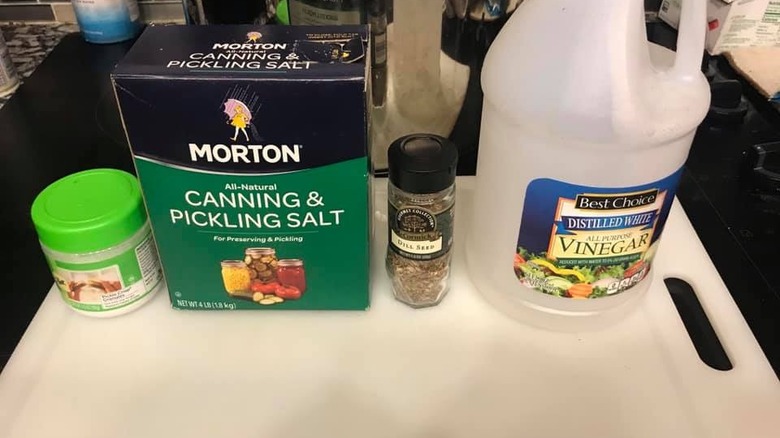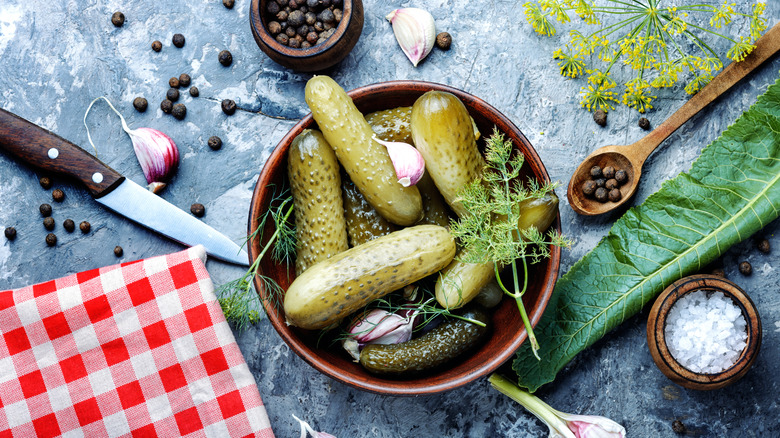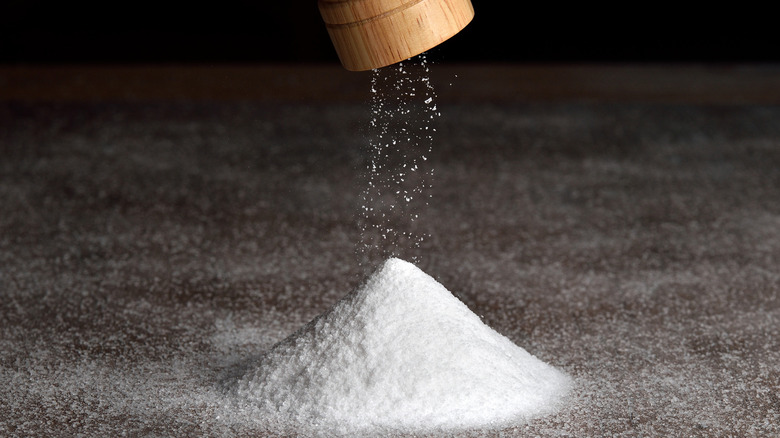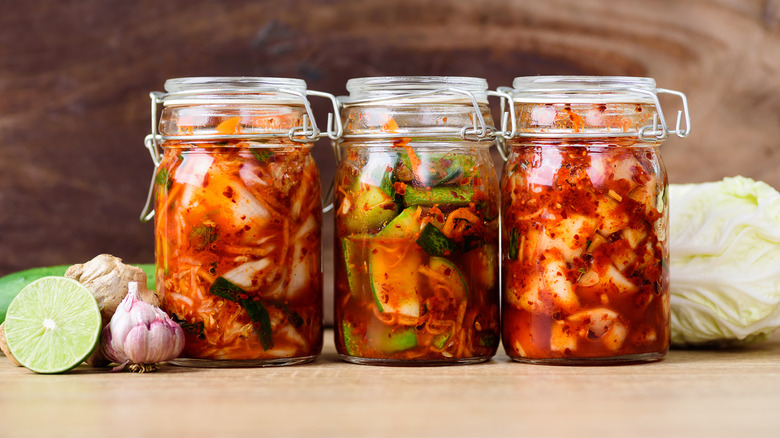What Is Pickling Salt Really?
Salt is so ubiquitous, you would be hard pressed not to find it, along with its bestie pepper, on most American dining tables. Its history is about as tantalizing as some of the foods it can season. Per the blog SeaSalt.com, it was once considered to be so valuable, it was used like currency with Roman soldiers, who were paid in the form of a bag of Sodium Chloride; not to mention, the etymology of the word salary can be traced to the Latin word for salt.
Fast forward to present day, and there are so many different varieties of salt, it can be downright confusing — this seemingly simple seasoning can be complicated. SeaSalt.com goes on to share that salt and real estate have a lot in common: location, location, location. Where salt comes from influences everything from its taste to its texture to its color and everything in between, including its use. One type of salt that always leaves us scratching our heads is pickling salt. What is it really? Is it any different from table salt?
Pickling salt has no additives
What exactly is pickling salt? According to The Kitchn, pickling salt is used to make — you guessed it — pickles. It is also used for canning and preserving other foods. The thing that makes pickling salt just that– pickling salt, or canning salt, as it is sometimes called — is the granular size and the fact that it is free of any additives. Pickling salt also has a much finer granule than table salt. This is important because, according to Spiceography, it is that fine ground that means it will dissolve quicker. This in turn helps with your brine and its rapidity to ferment your pickles, which means you will be able to enjoy their crunchy, savory goodness quicker.
The Kitchn goes on to share that pickling salt has zero anti-caking ingredients — the stuff that allows salt to fall like snow from the shaker and generally includes aluminum and silicon. It has zero iodine — zero anything extra. While the salt we sprinkle onto our favorite popcorn or use to season our steaks before we pop them on the grill may contain anti-caking ingredients and iodine, which WebMD notes is important to our health, pickling salt is salt in its purest form before we get innovative with it. Simply put, pickling salt is just salt.
It keeps your brine clear
Why do we care about added ingredients in our salt? The Kitchn points out that some of those additives can make your pickles dark or turn your brine cloudy. This can be problematic to the whole pickling process. As Leaf TV shares, the whole purpose of the canning salt is to preserve your pickles by soaking up all the liquid in the microbes and bacteria, thus killing them.
How do you know that they are dead? SB Canning notes that cloudy brine is generally a sign of your pickles have developed bacteria. Pickling salt takes the guess work out of whether it is just due to the type of salt used that made it cloudy, or bacteria is growing, because pickling salt creates a clear brine. Meaning, you don't have to worry about any yummy pickles going to waste. This is probably one of the biggest and very best reasons to use pickling salt.
What you can substitute for pickling salt?
Two of the most common brands of pickling salt are made by Morton, which also a lead brand for table salt, and Ball, which is a leading brand for canning. But if you don't have any pickling salt handy, you may be able to substitute another salt for it. The Kitchn shares that kosher salt can be a great substitute for pickling salt as long as it doesn't contain any additives, and goes so far as to recommend the brand Diamond Crystal. Also, if you do substitute kosher salt for pickling salt, bear in mind that you will need to use 50 percent more. What about using table salt? Yes, but with a bit of a caveat emptor: the quality of your pickles might be wanting because of table salt's additives.
Does pickling salt taste different? Per Rachel Herz,an adjunct assistant professor of psychiatry and human behavior at Brown University, told NPR, "We like the taste of salt innately because salt is a signal of protein in nature." Pickling salt is no different when it comes to taste, only it's way saltier. If you've heard the old adage that less is more, that can be applied to pickling salt. It can also be used when making ice cream or preserving meats, according to Leaf TV.



